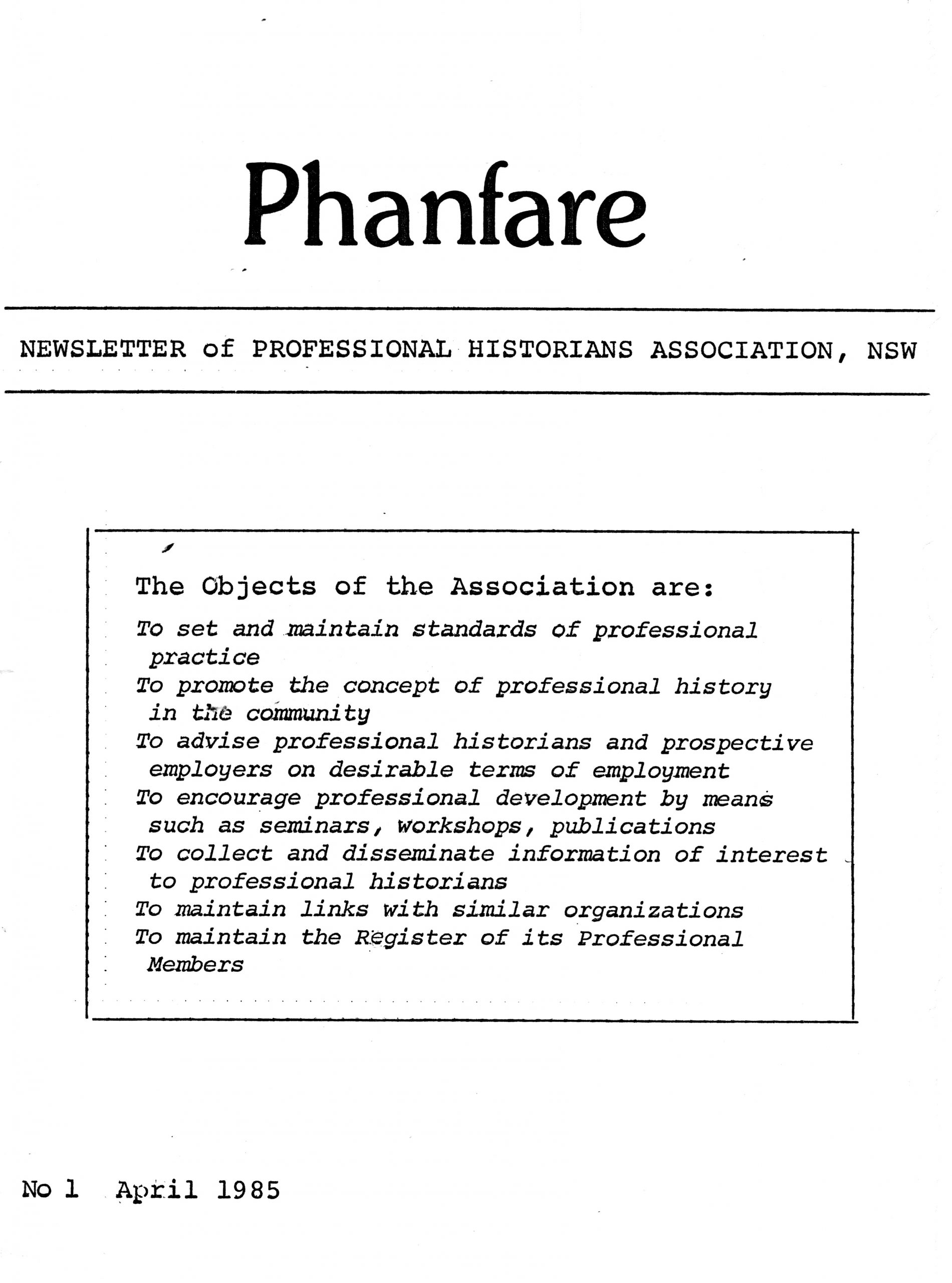by Terry Kass
The year 2010 marked 25 years of the PHA, a remarkable achievement for a small professional organisation run solely by its members on a voluntary basis with little or no paid staff. Yet I have heard that some younger members or potential members have been asking ‘What use is the PHA?’
Though they are beneficiaries of the achievements of the PHA, they might think it has little or no value. They have no inkling of what the PHA has achieved in 25 years.
Twenty-five years ago, there were a few historians working outside the universities, the usual hiding places for such unworldly specialties, which to many had nothing to do with the realities of everyday life. History was a foolish hobby indulged in by a few eccentrics. That common attitude made it difficult for historical research and writing to be regarded seriously when undertaking commissioned work. Many of those working as historians outside academe were active in heritage work though a very few had salaried employment.
The problems were:
- no agreed rates of remuneration
- no standardised contracts plus an absence of sources of appropriate advice regarding contracts
- no support mechanism in times of dispute
- no peer support mechanism and nowhere to go to obtain relevant advice
- a lack of understanding of tax and superannuation issues.
My own attempts to seek advice or set up some sort of protective mechanism led me to enquire if there was a union that might be appropriate for me to join. The Health and Allied Research Employees Union seemed, believe it or not, the most suitable! Discussions with union representatives soon made it perfectly clear that they had little idea of what I did and that they were uncomfortable with a self-employed professional who worked in such a field.
So, when Heather Radi, told me one day at the Mitchell Library, that a meeting of historians working like me was being held at the University of Sydney to propose a professional association, I was most interested. From that initial meeting, a larger meeting was called and in time, the PHA was formed.
What has the PHA achieved?
- A recommended scale of fees
- The formulation of advice regarding contracts
- A program of workshops and in-service training to improve professional skills
- A Professional Indemnity Insurance scheme for consulting historians
- An information service providing news of employment opportunities
- The raising of the profile of professional historians and the value of their work to government departments, architectural and planning firms and amongst potential clients after years of patient and thankless lobbying
- Possibly most valuable of all has been the creation of a network which links professional historians so they can informally discuss matters that are of common interest or concern.
Believe me, I would much rather be a professional historian today with the PHA there than go back to the way things were before it was formed.
The minutes of the inaugural meeting that set up the PHA are reproduced from Phanfare No 1, the cover of which is reproduced above.

Thanks for the timely reminder of where we are and where we’ve been, Terry. There’s a lot more to be done especially at the national level but it’s good to remind/inform members of what has been achieved so far.
Yes, a valuable recounting of fundamental steps in the recognition and functioning of professional historians. Many thanks, Terry.
Like all writers, historians work most often in lone situations. They do ‘befriend’ many of the people they encounter in their research. They do befriend those who provide them with access to the past. Importantly, they also befriend those who engage in similar historical research and writing. I find membership of the PHA provides links with folk facing challenges familiar to all lone workers. I find that supportive. The original aim looked to formal and informal peer support. Can I add feelings of camaraderie?